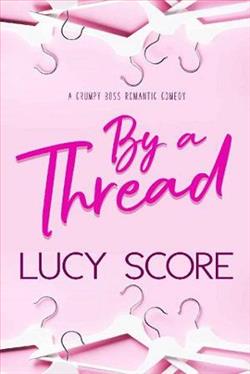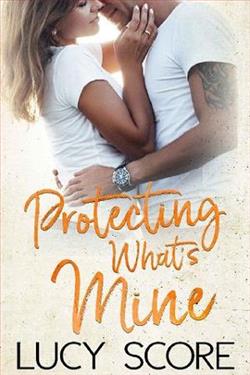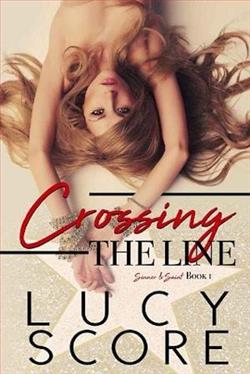Page 54 of The Kid
The Kid told him, “You’re a good cook and a good fellow, George, but if you think Pat Garrett is going to carry this precinct for sheriff, you are a darn poor politician.”
The Kid was right about Las Tablas; Garrett got only one vote out of forty. But in Lincoln County’s final tally of its 499 votes for sheriff, Pat F. Garrett of Roswell got 320 and was elected.
Paulita Maxwell later recalled, “Nothing ever gave Fort Sumner such a shock of surprise as Garrett’s selection by the cattle interests to be sheriff. He was just a saloonkeeper, with no experience as a detective and no reputation as a gunfighter.”
The election was on November 2, 1880, and Sheriff Kimbrell would h
ave normally stayed in office until January 1, but with cattlemen providing him a financial incentive, Kimbrell appointed Garrett as his deputy and pretty much vacationed for the next two months.
A journalist interviewing the new deputy sheriff inquired if he thought he could quell New Mexico’s outlawry, and Garrett told him, “Yes, I can. Because outlaws all have one thing in common: sooner or later they find themselves wanting to get caught.”
* * *
Governor Lew Wallace’s novel Ben-Hur: A Tale of the Christ was published in New York by Harper & Brothers on November 12, and he was in the East, neglecting his government duties and also ignoring the telegraphed entreaties of Billy’s lawyer, Judge Ira Leonard, who vowed the Kid would cease his illegal activities if he was just given the clemency that the governor had promised.
Soon everything began turning sour.
About the time that Lew Wallace was getting the first accolades for his bestselling novel, the Kid and his gang were riding into Puerto de Luna, forty miles northwest of Fort Sumner. Arctic cold flooded over the West that November, and they all wore woolen scarves over their heads and ears and hunched under the wind with bandannas over their noses, snarling at the agonies of weather. Wanting food and heat, they hitched their horses and with their spurs jangling walked into the restaurant and general store of Alexander Grzelachowski (Gur-zel-a-hóf-ski). He was a jovial, overweight, fifty-six-year-old former Catholic priest from Gracina, Poland, who’d been invited to New Mexico by the archbishop of Santa Fe, Jean-Baptiste l’Amy. But after some years as pastor of a church in Las Vegas, “my laziness ate all my wits,” as Grzelachowski put it, and he left the priesthood. Billy now thought of Padre Polaco’s place as his lair in Puerto de Luna, and he felt like flaunting his friendship with an educated European to his gang. With him were Tom Folliard, Charlie Bowdre, and Billie Wilson. Of late Wilson and the Dedricks were getting away with passing Wilson’s counterfeit currency, buying the finest new guns that way and so outraging the stung businessmen Jimmy Dolan and Joseph LaRue that they wrote letters of complaint to officials in the United States Treasury, who thereafter named Wilson, the Dedricks, and, of course, William H. Bonney as “persons of interest.”
Wedged into the gang just that morning was twenty-six-year-old Dave Rudabaugh, originally from Illinois. Called Dirty Dave because of his aversion to soap and water, he was an offensive, ruthless, dark-bearded lout filling up the doorway in his slouch hat and rank goat-hair coat. Doc Holliday had gambled with him in Dodge City and was quoted as saying, “Dave Rudabaugh is an ignorant scoundrel! I disapprove of his very existence. I considered ending it myself on several occasions but self-control got the better of me.” Wyatt Earp wore out three horses hunting for him following his robbery of a Santa Fe Railroad construction camp, and after Rudabaugh’s failed train holdup in Kansas, Bat Masterson finally arrested him. But he was offered immunity if he squealed on his three partners in crime, and he did, avoiding a five-year sentence in Leavenworth prison. Ending up in Las Vegas, Rudabaugh hired on as a policeman just to seem an unlikely stagecoach robber, which he was, but after a friend was arrested for murder, Rudabaugh tried to jailbreak him, succeeding only in killing a much-loved deputy, Antonio Lino Valdez. So Dirty Dave was on the lam, found Billie Wilson in White Oaks, and Wilson in turn convinced the Kid they needed a fifth Rustler. Currying the Kid’s favor, Rudabaugh had said, “Real sorry Alex McSween was taken from us. When he was just getting into lawyering, he was a schoolteacher at the Miles farm in Eureka. Taught my little sister Ida. Nice man, she said.”
“Small world.”
Entering the Grzelachowski establishment, the five were greeted by a genial owner, who flung his arms wide and fondly grinned as he said, “Halo, Boleslaw! Jak sie masz?” Hello, William! How are you?
“Swietnie,” the Kid said. Just fine. “Wanted to introduce you to my pals.”
Hands were shaken and names exchanged, and Padre Polaco asked the Kid, “Would you like to take something on the teeth? I have a kettle of borscht on the stove. Red beetroot, onion, garlic, very hearty.” Without waiting for a reply, he went to his kitchen cabinet and pulled down six Navajo bowls before calling out, “And some sweet Tokaji Aszú wine for the chilliness? I have.”
And Charlie called out, “You still a horse trader?”
Padre Polaco asked, “You need?”
Tom explained, “On the scout so much, we’re the ruination of animals.”
“I have horses.”
The Kid was warming himself in front of the fireplace and saw Billie Wilson dawdling near a display case. The Kid called to him, “You find a naked lady under that glass?”
“I’m shopping. The padre’s got some nice things.”
The Kid walked over and gazed at the jewelry as he stood beside Wilson. He retrieved a golden crucifix on a golden necklace and held it up to his gang. “Charlie, Tom. Would Paulita like this?”
“Hell if I know,” Tom said, and Charlie just shrugged.
The ex-priest asked, “Is she Catholic?”
“Well, she’s French and Spanish.”
“Then maybe.”
The Kid fitted the necklace inside its green velvet pocket and paid Grzelachowski the full price. The owner served the borscht, red wine, and hunks of stale bread to be soaked in the soup. Wrinkling his nose at Rudabaugh’s devastating odor, he told him, “I could find you in a room with no light.”
Rudabaugh thought it over for a few seconds and then concluded, “You sayin I stink?”
The Kid said, “He’s saying you have a strong personality.”
“Well, I guess that’s accurate.”















